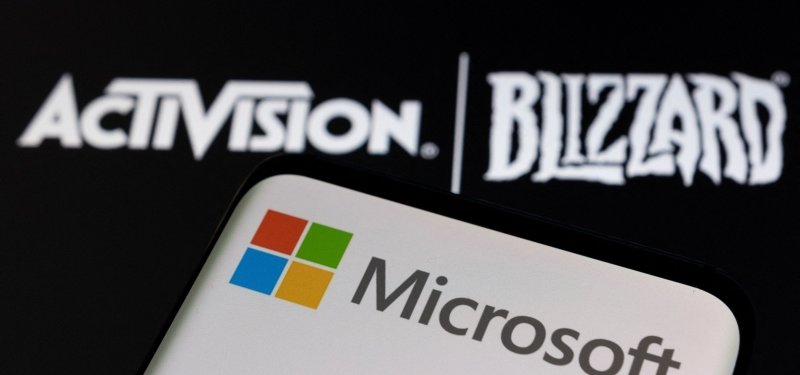
Microsoft's acquisition of Activision to face antitrust test
Analysts interviewed by AFP after the merger plan was announced on Tuesday said the deal would certainly be scrutinized, but likely less intensely than would an acquisition by Amazon, Google, or Facebook-parent Meta.
- Economy
- AFP
- Published Date: 09:13 | 19 January 2022
- Modified Date: 09:13 | 19 January 2022
Microsoft's $69 billion deal to buy video game powerhouse Activision Blizzard is expected to win out with regulators despite vows in Europe and the United States to rein in tech titans.
Analysts interviewed by AFP after the merger plan was announced on Tuesday said the deal would certainly be scrutinized, but likely less intensely than would an acquisition by Amazon, Google, or Facebook-parent Meta.
"From a regulatory perspective, Microsoft is not under the same level of scrutiny as other tech stalwarts," said Wedbush analyst Dan Ives.
Microsoft chief executive Satya Nadella "saw a window to make a major bet on consumer while others are caught in the regulatory spotlight and could not go after an asset like this," Ives added.
The analyst noted that there are bound to be some "speed bumps navigating both the Beltway and Brussels" given the epic size of the deal.
Microsoft catapulted itself into the big league in one of the world's most lucrative markets by announcing the deal to take over Activision-Blizzard -- the biggest acquisition in the video game sector's history.
The deal will bring some of the world's most famous games into Microsoft's possession, including "Call of Duty", "Candy Crush" and "Warcraft", and make it the third-largest gaming company in the world, behind only Sony and Tencent.
Not leaping into the top spot in the market should be in Microsoft's favor when it comes to regulators worried about the potential for monopoly power.
There are concerns, however, that Microsoft might make future Activision titles exclusive to its Xbox consoles and Windows-powered computers, shutting out rival PlayStation hardware made by Japan-based Sony.
Activision has long made blockbuster games such as "Call of Duty" for both consoles.
"While some have argued that this would be against its own interests and curtail its revenue stream, this wouldn't be unusual given how Microsoft has got itself into trouble by bundling hardware and software previously," said CMC Markets chief market analyst Michael Hewson.
US VS CHINA?
Regulators might even see value in Microsoft challenging video game industry heavyweight Tencent, which is based in China, analysts contended.
"While the acquisition is big, Microsoft does not become the largest gaming company so it is hard to talk about monopolistic behavior," Creative Strategies principal analyst Carolina Milanesi said of how regulators could view the merger.
"There might be also a US vs. China play here in favor of Microsoft considering how big Tencent is."
Microsoft merging game, cloud computing, and software as part of a push in the metaverse would also make it a rival to Meta, which renamed the company from Facebook in tribute to such immersive, virtual worlds being the future.
"Microsoft is formidable competition for Meta, Epic Games, Tencent, and Roblox, all of which are scrambling for dominance in this emerging theme," said GlobalData principal analyst Rupantar Guha.
"While the metaverse is still largely conceptual, Microsoft's strength in underlying themes such as artificial intelligence, augmented reality, virtual reality, and cloud computing give it a leadership position in this theme."
Niko Partners senior analyst Daniel Ahmad was among those confident that the video game industry will continue to consolidate after a record year of take-over deals in 2021.
"One has to wonder what Tencent might do next," Ahmad said.

